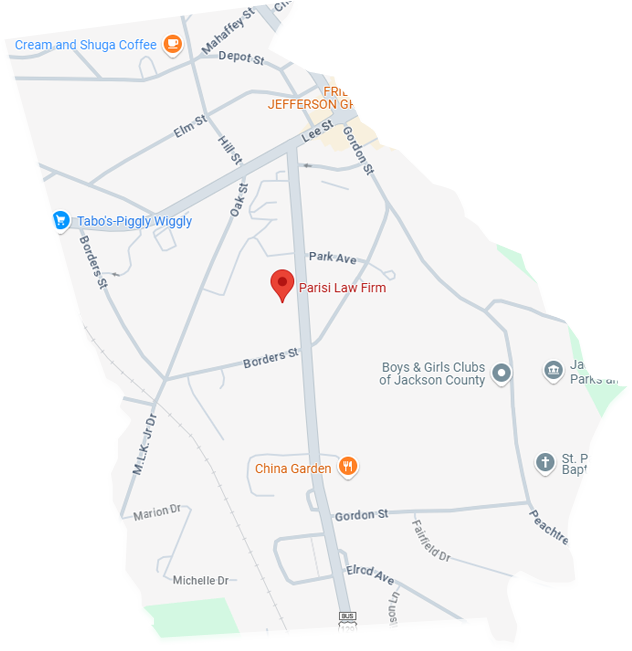Once the trauma of a serious accident subsides, the work of rehabilitation and recovery sets in — but so too does the work of filing an insurance claim.
At some point, you’ll be pressed to give an insurance adjuster a statement. How do you know what to say? …or more importantly, what not to say?
Do you even have to give them a statement? What if this goes to court?
These questions are worth spending time on, and it’s crucial you get the right coaching for your situation from someone who knows how to build the most effective possible claim from the beginning.
What Types of Accidents Does Personal Injury Law Cover?
Broadly, any accident directly caused by someone’s negligence results in serious injuries. They can occur at any time on the road or on properties, both public or private.
Whether you’re behind the wheel, enjoying a public space, or visiting someone’s property, personal injury accidents can occur in a variety of situations:
- Auto accidents
- Pedestrian or bicycle accidents
- Unmarked slip or trip hazards
- Unsafe work conditions
- Hazardous conditions on public properties or private properties
Unintentional though these situations are, they still involve major legal liabilities — and the potential for equally large insurance claims to offset your costs of recovery.
Recovering Damages
The injuries involved can range from the most common head or neck injuries during an auto accident to mortal injuries that alter one’s ability to work and enjoy life. Even a small slip hazard could be incredibly serious, especially for an elderly person.
Whatever your injury might be, it’s important to ensure you have the help you need to recover from your damages. This requires properly framing your claim, from the beginning, for maximum success with the insurance company — and the courts, if necessary.
The Circumstances of the Accident
Depending on where the accident occurred and its circumstances of it, your insurance claims process will vary. At the same time, there are some commonalities you should prepare for, such as how to handle the pressure of giving a recorded statement. This will depend on which insurance company is requesting your statement:
- If it’s your insurance company, your insurance policy (which is a contract) will usually require that you provide a recorded statement to your insurer when presenting an uninsured or underinsured motorist claim. However, you should consult with an attorney before giving a statement. ;
- If it’s the negligent party’s insurance company, you are not required to provide a recorded statement, and it’s best if you do not. This is because the insurance company will attempt to use the recorded statement against you.
In either case, remember that you must be very careful with what you say to an insurance company during the claims process since your own words can be used against you in any subsequent lawsuit.
The most effective results will occur by sending all communications through your legal counsel. This will ensure you only put forward information that creates the strongest possible claim. You never know when something said to the insurance company could be used to hurt your case, especially if the issue escalates to the courts. It should also always be in writing.
Further, insurance companies for negligent parties have increasingly gotten into the habit of pressuring injured parties to provide statements even after a claim has been properly filed. Nothing good can come out of this, and there is no legal requirement for you to answer their questions. This is especially true if a court process has already begun — in which case, they would motion the court to compel an answer if it’s truly necessary.
Whatever their reason may be for going outside proper communication or legal channels, you can easily shut down their efforts to undermine your claim by instructing them to convey all communications through your legal counsel. Even when it’s your own insurance company, you should send only that information your lawyer advises you to and even have it sent through their law offices.
Don’t Settle for Less Than Expertise
Our counsel can help you determine the right way to build your case, and it’s important to do so properly from the outset. A small error in any one of the elements listed below could jeopardize your entire claim, both with the insurance company and the courts.
Schedule a free, no-obligation consultation, and one of our attorneys and we can help you determine the most important details, such as:
- Proving negligence
- Relevant laws and statutes
- Time limits and deadlines
- Insurance policy limits
- Local court rules and procedures
We can also help you clarify what the insurance adjuster will look for and how to convey the right information to them.
Again, if an insurance company has already asked you for a statement, the safest way to handle it is to politely inform them that you will convey all communications with them through your lawyer. Then, reach out for a free initial consultation to discuss the details of your case and determine how much it may be worth.
Frequently Asked Questions
What if I’ve already made a statement to the insurance company?
If it’s your own company, it may not be a problem — they also want to ensure the other party’s insurance company is held liable for damages.
If you’ve given a statement to the negligent party’s insurance company, tell your personal injury lawyer what was said and how it was asked. They can help guide you on how to best handle this variable in your case going forward.
Why do they want a statement from me?
At some point, you must provide evidence of your injuries, along with proof of their client’s negligence, to file a claim. However, some unscrupulous insurance adjusters will look for ways to get honest victims to inadvertently express some fault of their own or give them some evidence that the accident was not the direct fault of their client or to minimize the damages. In all cases, be cautious of this.






